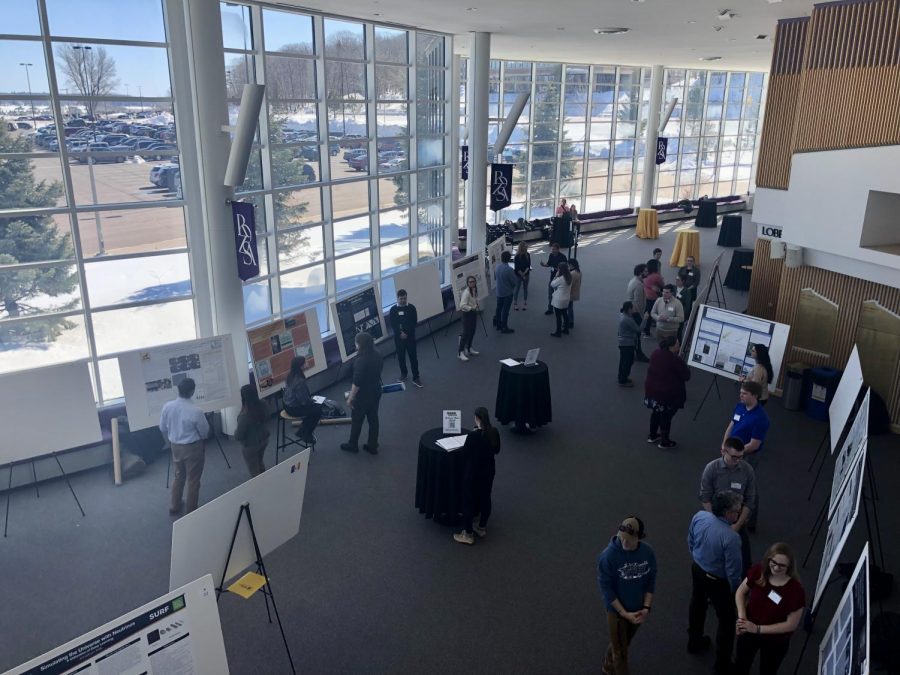Judges Score Student Research Projects from a Variety of Departments
For the past 10 years, Tech has been hosting an Undergraduate Research Symposium that allows students to present projects that they have worked on diligently. Each student compiles many months of research into one poster to be presented and judged. This year, students presented research at the symposium from a variety of different departments, including Biology, Social Sciences, Materials Science and Engineering, and Forestry.
Chris Honholt, the Pavlis Honors Pathway Specialist, expressed the importance of recognizing the research our students are doing. In his welcome talk he said, “Undergraduate research is a great way to prepare students for graduate school… Even if our students are not planning on graduate school, the skills that it teaches you, like problem solving and time management, are important skills to have and are exactly what employers are looking for.”
Dr. Timothy Havens, the director of the GLRC, echoed Honholt’s sentiments. He explained that, “Undergraduate research is often the first opportunity that a student gets to work on a problem that hasn’t been solved, and may not even have a solution. This can be such an inspiring experience, sometimes turning into lifelong passions that define careers and change the world.”
Havens went on to explain some of the projects that inspired him most. “This year’s theme of World Water Day was Accelerating Change and I was struck by the overall tone of student projects in considering the accelerating changes that our world is undergoing and how their work addressed topics such as climate change, biodiversity, and sustainability and resilience.” Some of the projects at the symposium that addressed these issues included researching a plastic eating worm, improving the health of fish in aquaculture, considering how mercury affects our food sources, and looking at marine food webs.
The students presenting at the symposium were all clearly very passionate about their research and many had goals to continue researching. Havens recalls his time when he was in the shoes of being an undergraduate researcher. “Undergraduate research was a huge factor in my career. I was so close to quitting school with little idea of what I wanted to do with my life; instead, after working on a research project, I decided to double down and went to graduate school. I have seen this shift in so many students who are struggling to contextualize what they are learning. The spark of solving a problem that no-one has solved before is addicting.”
Hunter Roose, who is now a Masters student in the GLRC, attended the symposium and said, “I think the research symposium is an awesome way for researchers at MTU and non-presenting undergraduates, to get to know undergraduate researchers who are just starting and make initial contact with future collaborators, advisors, and colleagues. When I was in my senior year our symposium got canceled because of covid, I had no clue what other undergraduates were doing!” He continued, “The ecology related posters were my obvious favorite but I learned about some other happenings that are currently being researched on campus, a lot of impressive work by undergrads!”





